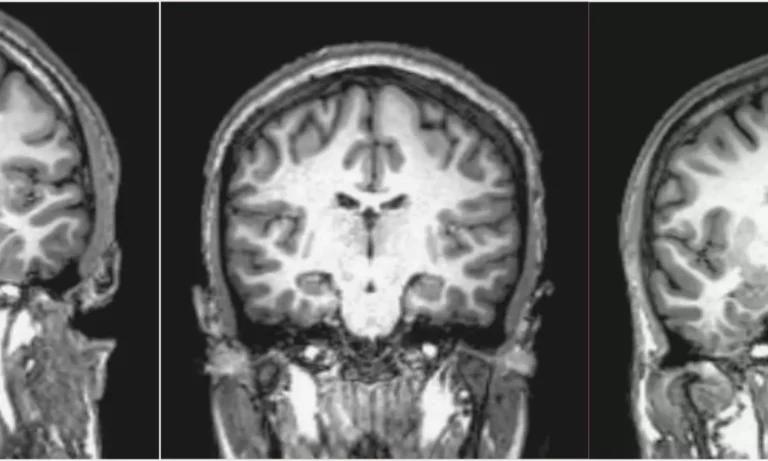
Schizophrenia is a complex and often misunderstood mental health condition that can have a profound impact on an individual’s life. While there is no known cure for this disorder, there are a variety of effective treatment options available that can help individuals manage their symptoms and improve their overall quality of life. In this guide, we will explore the various approaches to treating schizophrenia, from medication and therapy to alternative therapies and lifestyle changes.
Understanding schizophrenia
Schizophrenia is a chronic mental illness that causes psychosis which affects how a person thinks, feels, and behaves. It is characterised by a range of symptoms, including delusions, hallucinations, disorganised speech and behaviour, and cognitive impairments. The onset of schizophrenia typically occurs in early adulthood, with men often developing the condition at a younger age than women.
The causes of schizophrenia are not fully understood, but it is believed to be the result of a combination of genetic, environmental, and neurological factors. Some of the known risk factors for developing schizophrenia include a family history of the condition, exposure to certain infections or toxins during pregnancy, and the use of certain recreational drugs.
Treatment of schizophrenia
Treating schizophrenia requires a multifaceted approach that addresses the various aspects of the condition. The primary treatments for schizophrenia include:
Medication
Antipsychotic medications are the cornerstone of schizophrenia treatment. These medications work by regulating the brain’s neurotransmitter such as dopamine, which are believed to play an important role in the development of the condition. There are two main types of antipsychotic medicines: first-generation (or typical) and second-generation (or atypical) medications.
First-generation antipsychotic drugs, such as haloperidol and chlorpromazine, were the first developed to treat schizophrenia. While effective in reducing positive schizophrenia symptoms (such as delusions and hallucinations), these medications can also cause significant side effects, including movement disorders and sedation.
Second-generation antipsychotics or atypical antipsychotics, on the other hand, are designed to have a more targeted effect on the brain’s neurotransmitters, to reduce side effects. Examples of second-generation antipsychotics include olanzapine, risperidone, and quetiapine. These medications are effective in treating both positive and negative symptoms of schizophrenia, and they may also have a lower risk of certain side effects.
It is important to work closely with a psychiatrist or mental health professional to find the right medication and dosage for each individual, as the response to antipsychotics can vary greatly from person to person. Medication management may also involve the use of other types of medications, such as antidepressants or mood stabilizers, to address co-occurring conditions.
Psychosocial treatment
In addition to medication, psychosocial interventions are an essential component of schizophrenia treatment. These therapies aim to help individuals develop coping strategies, improve their social and cognitive functioning, and enhance their overall quality of life.
One of the most widely used psychosocial interventions for schizophrenia is cognitive-behavioral therapy (CBT). CBT is a talking therapy that helps individuals identify and challenge the negative thought patterns and behaviors that can contribute to their symptoms of psychosis. Through this process, individuals can learn to manage their symptoms more effectively and improve their ability to function in daily life.
Other psychosocial interventions for schizophrenia include:
- Social skills training: Helps individuals develop and improve their social interaction and communication skills
- Family therapy: Involves the individual’s family members in the treatment process, to improve communication and provide support
- Vocational rehabilitation: Assists individuals in finding and maintaining employment, which can be an important aspect of recovery
- Supported housing: Provides individuals with stable and supportive living arrangements, which can be particularly important for those who have difficulty living independently
The specific psychosocial interventions used will depend on the individual’s needs and the resources available in their local community.
Alternative therapies
While medication and psychosocial interventions are the primary treatments for schizophrenia, some individuals may also benefit from alternative or complementary therapies. These therapies can be used alongside traditional treatments to provide a more holistic approach to managing the condition.
Some examples of alternative and complementary therapies for schizophrenia include:
- Art therapy: Allows individuals to express their thoughts and feelings through creative expression, such as painting, drawing, or sculpting
- Music therapy: Involves the use of music to help individuals manage their symptoms, improve their mood, and enhance their overall well-being
- Mindfulness-based interventions: Teach individuals to focus on the present moment and develop a greater sense of self-awareness, which can help reduce stress and improve their ability to cope with symptoms
- Omega-3 fatty acid supplements: Some research suggests that these supplements may have a positive impact on brain function and potentially reduce the risk of developing schizophrenia
It is important to note that while these alternative therapies may be helpful, they should not be used as a replacement for traditional treatments. Instead, they should be considered as complementary approaches that can be used in conjunction with medication and psychosocial interventions.
Challenges of schizophrenia treatment
Treating schizophrenia can be a complex and challenging process, and individuals may face a variety of obstacles along the way. Some of the key challenges in schizophrenia treatment include:
Medication adherence
One of the biggest challenges in schizophrenia treatment is ensuring that individuals take their medication as prescribed. Many individuals with schizophrenia may be reluctant to take their medication due to concerns about side effects or a lack of insight into their condition.
To address this challenge, healthcare providers may recommend the use of long-acting injectable antipsychotics, which can help ensure that individuals receive their medication regularly. Additionally, psychosocial interventions, such as adherence therapy, can help individuals develop a better understanding of the importance of medication adherence and provide them with the support they need to stick to their treatment plan.
Symptom management
Despite the availability of effective treatments, many individuals with schizophrenia continue to experience persistent psychotic symptoms, such as delusions, hallucinations, and cognitive impairments. This can be particularly challenging for individuals who have not responded well to traditional treatments or who have experienced significant side effects.
In these cases, healthcare professionals may recommend trying alternative medications or combinations of medications, or they may suggest the use of electroconvulsive therapy (ECT) or other forms of brain stimulation. Additionally, they may work with the individual to identify and address any underlying factors that may be contributing to their persistent symptoms, such as stress, substance abuse, or co-occurring mental health conditions.
Stigma and discrimination
Schizophrenia is a highly stigmatised mental health condition, and individuals with the disorder often face significant discrimination and social isolation. This can make it difficult for them to seek out and engage in treatment, as they may be afraid of being judged or misunderstood by others.
To address this challenge, healthcare providers and mental health advocates need to work to reduce the stigma surrounding schizophrenia and to provide individuals with the support and resources they need to overcome the social and emotional barriers they may face. This may involve educational campaigns, and support groups to ensure individuals with schizophrenia are treated with compassion and respect.
Key takeaways
- Schizophrenia is a complex mental health condition that requires a multifaceted approach to treatment
- Medication management, including both first-generation and second-generation antipsychotics, is the foundation of schizophrenia treatment
- Psychosocial interventions, such as cognitive-behavioural therapy, social skills training, and vocational rehabilitation, are essential components of a comprehensive treatment plan
- Alternative and complementary therapies, such as art therapy, music therapy, and mindfulness-based interventions, can be used in conjunction with traditional treatments to provide a more holistic approach to managing the condition
- Navigating the challenges of schizophrenia treatment, including medication adherence, symptom management, and stigma, requires a joint effort between individuals, their loved ones, and their healthcare providers
- Embracing a holistic approach to schizophrenia management, which addresses the physical, psychological, and social aspects of the condition, can help individuals with schizophrenia develop the coping strategies and support systems they need to live fulfilling and meaningful lives
By understanding the complexities of schizophrenia and the various treatment options available, individuals with the condition and their loved ones can take an active role in their recovery and work towards a brighter future.
Sources
- Schizophrenia – Diagnosis and treatment – Mayo Clinic
- Treatment – Schizophrenia – NHS
- Schizophrenia: What It Is, Causes, Symptoms & Treatment
- What treatments are there for schizophrenia? – Mind
Medical Disclaimer
NowPatient has taken all reasonable steps to ensure that all material is factually accurate, complete, and current. However, the knowledge and experience of a qualified healthcare professional should always be sought after instead of using the information on this page. Before taking any drug, you should always speak to your doctor or another qualified healthcare provider.
The information provided here about medications is subject to change and is not meant to include all uses, precautions, warnings, directions, drug interactions, allergic reactions, or negative effects. The absence of warnings or other information for a particular medication does not imply that the medication or medication combination is appropriate for all patients or for all possible purposes.








